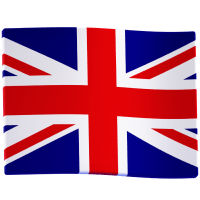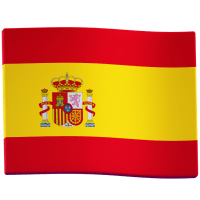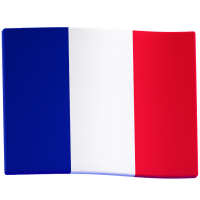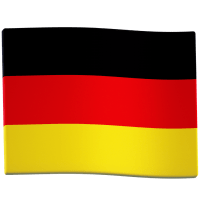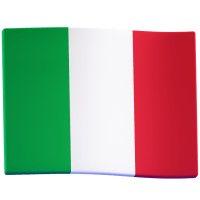German phrases and expressions you can learn today
Start learning the most common German phrases

10 Basic German phrases you need to know
We have prepared a list of common German expressions that will help you have a basic conversation in German in no time. Let's dig in!
1. Guten Morgen. = Good morning.
If you find yourself in Austria it is always polite to say “Hi” every morning because German speakers are really sociable. “Good morning” in German is "Guten Morgen".
Now enjoy being greeted by a fluent speaker:Guten Morgen.
2. Guten Tag. = Good afternoon.
But what if it's later in the day and you want to greet someone from Vienna? Well, “Good afternoon” in German is "Guten Tag".
Now listen to how a German speaker would pronounce it:Guten Tag.
3. Mein Name ist Mondly. = My name is Mondly.
Let's say your name is Mondly, you are traveling to Munich and meet someone on the street. To introduce yourself you can say "Mein Name ist Mondly" which means "My name is Mondly" in German.
Listen to how a person from Germany would pronounce this phrase:Mein Name ist Mondly.
4. Es freut mich, dich kennenzulernen. = I'm pleased to meet you.
Now that you have introduced yourself, a German speaker would respond "Nett, Sie kennenzulernen" which means "I'm pleased to meet you" in German.
Listen to a fluent German speaker saying that exact sentence to you right now:Es freut mich, dich kennenzulernen.
5. Wie geht's? = How are you?
At this point, it might be polite to ask the person you are having a conversation with "How are you?" in German.
It’s really easy to pronounce. Here's how to say it:Wie geht's?
6. Gut, danke. Wie geht es Ihnen? = Fine, thanks. And you?
If, on the other hand, a German speaker asks you first how are you doing, this is how you can answer politely. Apply the unspoken rule of politeness everywhere you go and many doors shall joyously open in your path.
Here's a fluent speaker showing you how to say it:Gut, danke. Wie geht es Ihnen?
7. Ich möchte ein Bier. = I’d like a beer.
And because you might find yourself in a bar when visiting Berlin you might have to learn how to order a beer in German.
Let a fluent German speaker show you how it's done:Ich möchte ein Bier.
8. Es tut mir leid. = I'm sorry.
There are times when what you ordered is out of stock, so a bartender might say "Es tut mir leid" which means "I'm sorry" in German.
Listen to how it's pronounced:Es tut mir leid.
9. Bis bald! = See you soon!
This is a good way of saying "See you soon" in German to a co-worker from Switzerland that you are probably going to see the next day.
Delight your senses with a German speaker saying the phrase:Bis bald!
10. Tschüss. = Goodbye.
Let's end with the best way to end a pleasant conversation politely. This is another way of saying "Goodbye" in German.
Here's how a person from Austria would pronounce it:Tschüss.
10 useful German phrases for everyday situations

● Können Sie mir helfen? – “Can you help me?”
● Ich feiere meinen Geburtstag. – “I celebrate my birthday.”
● Nein, hungrig bin ich nicht. – “No, I am not hungry.”
● Ich komme aus Rumänien. – “I come from Romania.”
● Hallo, Rezeption. - "Hello, front desk." Do you want to explore German greetings beyond Hallo?
● Die Rechnung, bitte. – “The bill, please.”
● Prost! – “Cheers!”
● Tut mir leid. - "I am sorry." Do you want to see other ways to say sorry in German? Then, let's learn!
● Wo ist der Bahnhof? – “Where is the train station?”
● Danke! – “Thanks!”
● Entschuldigung. – “Excuse me.”
● Einen Moment, bitte. – “One moment, please."

The benefits of learning the most common German phrases first

Get smarter day by day
Learning a new language is a perfect way to boost your IQ. In no time, your brain will make new connections and associations and you’ll feel that learning German was one of the best choices you ever made.

Have real conversations in German today
Once you start learning a few basic sentences in German you will have the knowledge to start your first German conversation. That’s why, at Mondly, we’ve created experiences that simulate real-life conversations to get you speaking German in no time.

Become fluent in German quicker
Starting with the basics, we quickly lay a foundation for you to learn more complex German phrases and sentences. We gradually build your German knowledge so you get fluent faster than you could imagine.

Feel how easy to learn the German language can be
Every language experience should start gradually, from the easiest to the more complex concepts. Starting with the easiest and most common German phrases, you will feel confident in your ability to learn a new language. That’s one of the core principles Mondly is built on.






